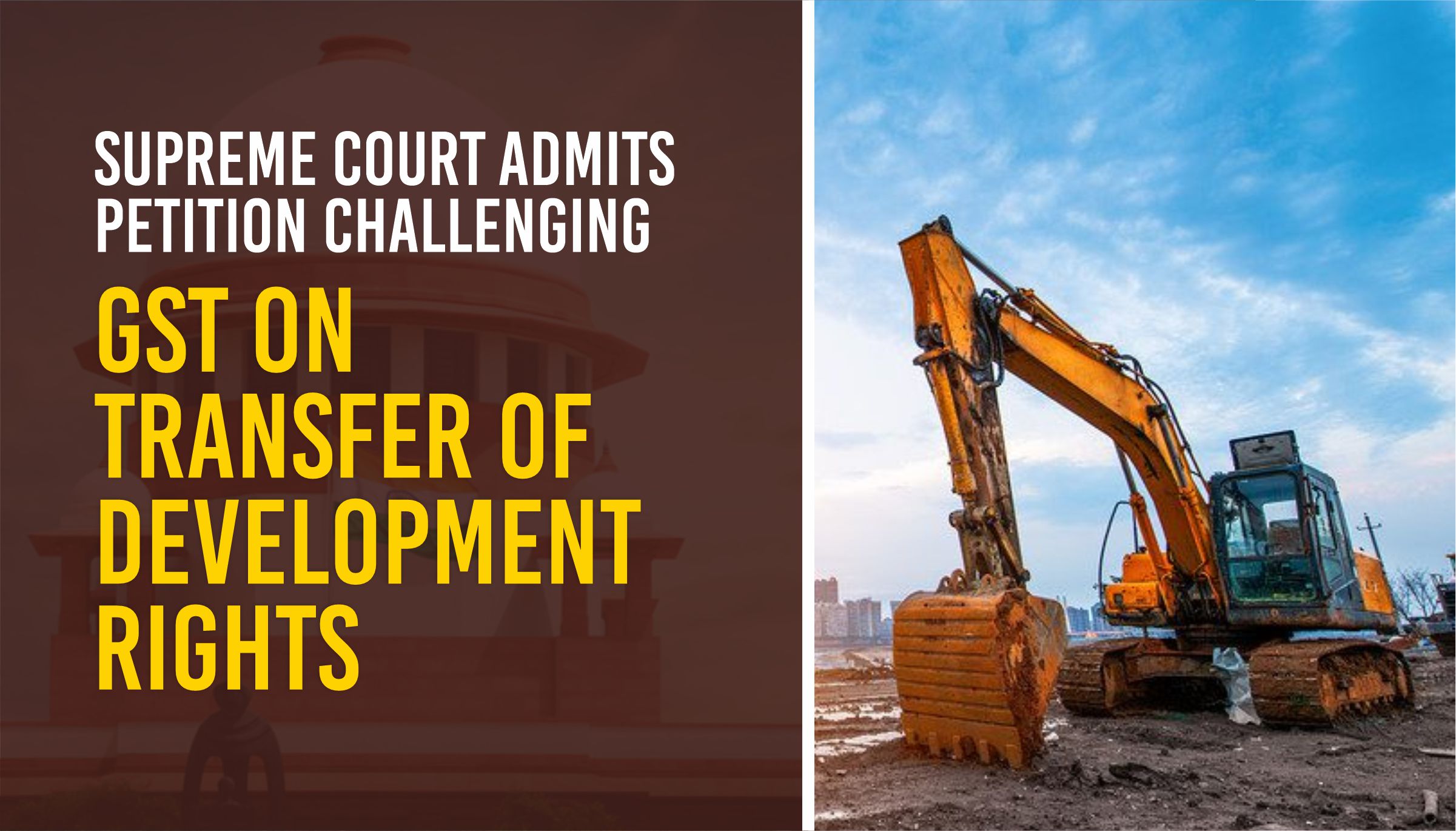SC Admits Petition Challenging GST on Transfer of Development Rights

A recent development in the Indian real estate sector has brought the levying of Goods and Services Tax (GST) on the transfer of development rights within joint development agreements under scrutiny. The Supreme Court of India is now considering a petition contesting this issue, which could have far-reaching implications for realty developers and landowners across the country.
Court Notices Issued
The Supreme Court has issued notices to the Union government, GST Council, and Central Board of Indirect Taxes and Customs (CBIC) in response to a special leave petition (SLP) filed by a property developer in Telangana. This move signifies a significant step in addressing the concerns raised regarding the applicability of GST on development rights transfers.
The imposition of an 18% GST on real estate projects has sparked discussions about its impact on the cost dynamics of joint developments and redevelopment projects nationwide. This decision marks a significant transformation in the taxation framework of the real estate sector, affecting stakeholders across various property markets.
Legal Background
Earlier, the Telangana High Court dismissed a similar challenge brought forth by the developer, prompting them to seek relief from the Supreme Court. Tax experts representing the developer argue that while works contract services are already subject to GST, the imposition of GST on development rights could lead to double taxation, especially concerning ancillary rights associated with land sales.
In 2020, a South India-based developer filed a writ petition challenging a GST notification from 2019 that aimed to levy taxes on the transfer of development rights. The petitioner argues that such taxation would equate the transaction to land sales, raising concerns about its impact on project feasibility and stakeholder interests.
Concerns of Real Estate Developers
Real estate developers have voiced their concerns to the Ministry of Finance regarding the GST implications on rehabilitation apartments built and delivered to existing occupants as part of redevelopment projects. This highlights the broader implications of GST policies on various aspects of real estate development and transactions.
Joint development and redevelopment projects play a crucial role in urban development, especially amidst rising land prices and limited availability of vacant land parcels in urban centers. However, the imposition of GST on development rights could pose challenges to the feasibility of such projects in major cities like Mumbai, Pune, Bengaluru, Hyderabad, and Kolkata.
The ongoing legal battle and discussions surrounding the GST on transfer of development rights underscore the complexities and challenges faced by the real estate sector in India. The outcome of the Supreme Court’s deliberations and the response from relevant authorities will shape the future trajectory of real estate transactions and development in the country.
